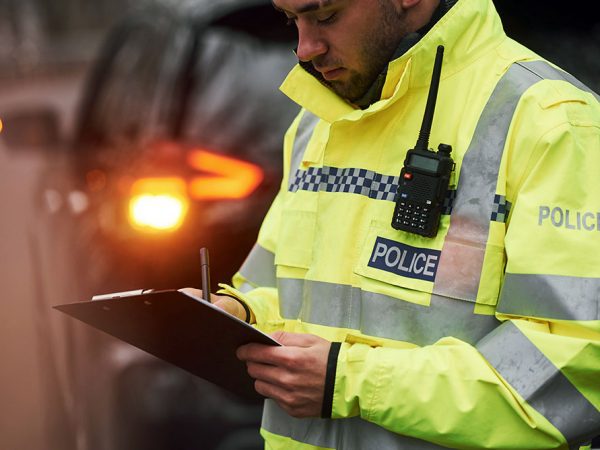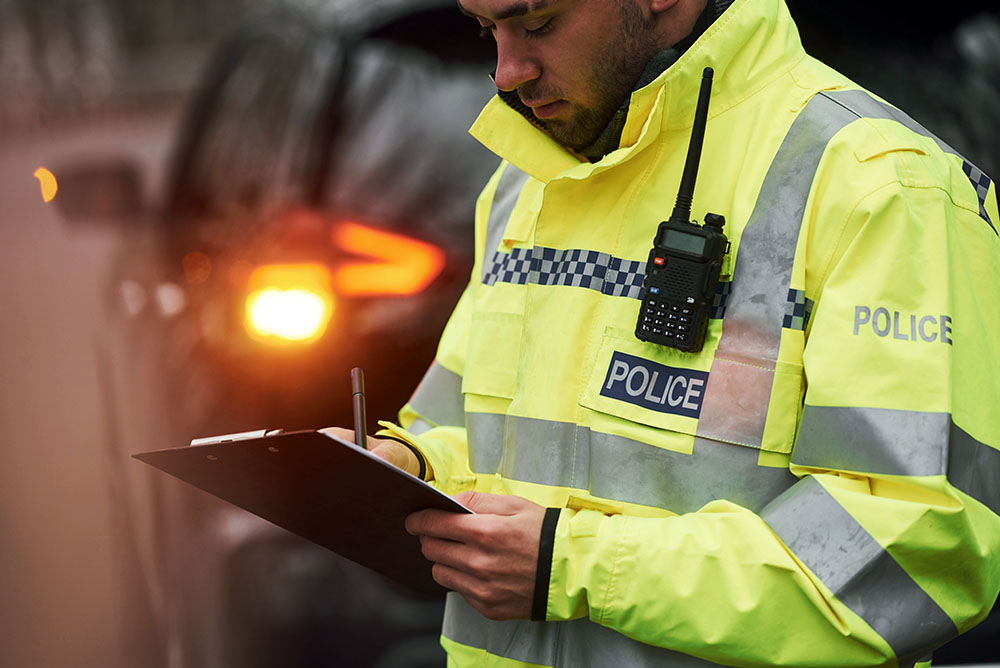
Male police officer in green uniform standing with notepad near car.

You or someone you know was involved in a car accident. People were injured, emergency services were called, and the police are deciding whether to lay charges. Can you initiate a civil trial depending on whether charges are laid?
The answer is that it doesn’t matter. Criminal and civil trials are two court procedures that function independently from one another.
Criminal Trials
Criminal trials will take place if the police lay charges against someone. During the trial, the court will have to determine if the person has committed the offense they are accused of “beyond reasonable doubt”.
“Beyond reasonable doubt” means that the court does not need absolute certainty, but close to it. A reasonable doubt is based on the evidence and is not frivolous or based on one’s bias. Because the impact on an accused can be very important, there needs to be a higher bar to convict a person of a criminal offense.
The Crown attorney will have to bring evidence that the person accused has indeed committed the offence they are accused of.
The participation of the victim is also limited. The trial is conducted by a Crown attorney who represents the state. It is possible to make a victim impact statement to the court to express the impact it has had on one’s life, and sometimes the victim is called as a witness.
If found guilty, the accused will receive a sentence from the court, which can include a fine, or jail time, or both, but the victim does not get monetary compensation for what they suffered from a criminal trial.
Civil Trials
In the context of a car accident, an injured person can initiate a civil action to obtain compensation from the person responsible for the accident. The court will have to determine the case on a “balance of probabilities”
“Balance of probabilities” means that the court must be convinced that something is more likely to be true than not. It is a lower bar than for criminal trials, where there must be no reasonable doubt that something is true.
The person who initiates the action will have to bring evidence of two things: the damages they suffered, and the liability of the person or entity they hold responsible for their injuries.
Damages
The person who initiates the action will have to demonstrate to the court that they have suffered serious injuries as well as the impact these injuries had on their life.
Liability
The liability is the link between someone’s actions and the resulting injuries. For example: Julian was driving his car on the street and was distracted by a puppy on the sidewalk. He did not see the light turning red and bumped into Fatima’s car in front of him. In court, Fatima will have to prove to the court that it is Julian’s actions that caused the accident and the injuries she sustained when her car was hit.
Civil actions require the injured person to be more involved in the process. They make more decisions regarding how things proceed than during a criminal trial. Civil actions allow for negotiations to take place before the trial and give a chance to everyone to settle the matter to the satisfaction of all parties before it is heard by the court. In fact, most civil actions are resolved without going to court.
If found liable by the court, the person responsible for the injuries will have to compensate the injured person. This compensation is meant to cover injuries sustained in the accident, for example pain and suffering, lost income, lost ability to care for their family and maintain their home. It is not meant to punish the responsible party, but to restore the injured person to the position they had before the accident.
If you or a person close to you have suffered injuries in an accident and are unsure about initiating a civil action, do not hesitate to consult a qualified and experienced lawyer, like the lawyers of Burn Tucker Lachaîne. It allows you to gather all the important information and make an informed choice on what will be your next step.
By Catherine Dion-Gagnon of Burn Tucker Lachaîne Personal Injury Lawyers
Navigating Ontario’s auto insurance system can be complex, especially when it comes to optional endorsements like OPCF 44R. While standard auto insurance policies […]
Significant changes are coming to Ontario auto insurance, and they may cost you more than just a few dollars in savings. On July […]
The Superior Court of Justice recently weighed in on whether payments for the Canada Emergency Response Benefit (CERB) and the Canada Recovery Benefit […]